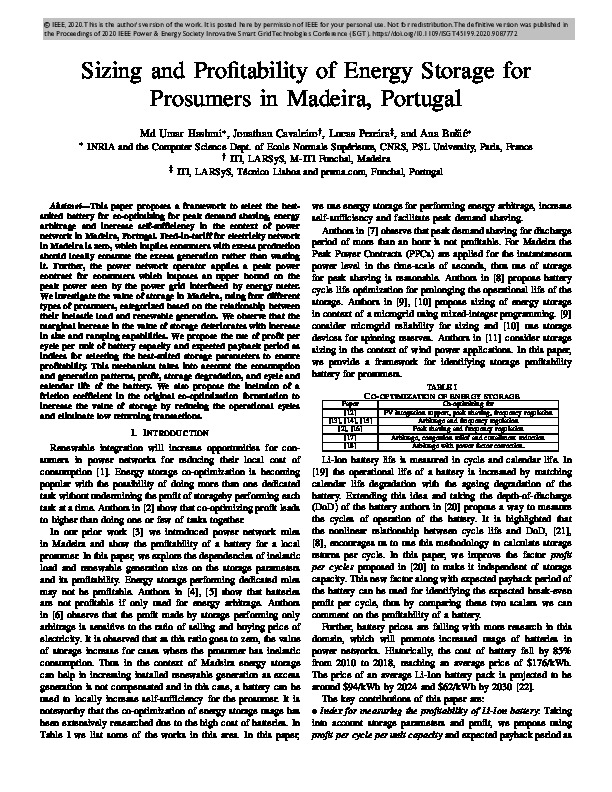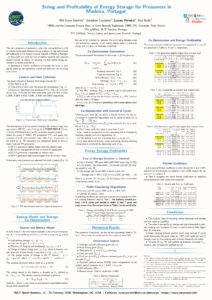Sizing and Profitability of Energy Storage for Prosumers in Madeira, Portugal
Abstract
This paper proposes a framework to select the best-suited battery for co-optimizing for peak demand shaving, energy arbitrage and increase self-sufficiency in the context of power network in Madeira, Portugal. Feed-in-tariff for electricity network in Madeira is zero, which implies consumers with excess production should locally consume the excess generation rather than wasting it. Further, the power network {operator} applies a peak power contract for consumers which imposes an upper bound on the peak power seen by the power grid interfaced by energy meter. We investigate the value of storage in Madeira, using four different types of prosumers, categorized based on the relationship between their inelastic load and renewable generation. We observe that the marginal increase in the value of storage deteriorates with increase in size and ramping capabilities. We propose the use of profit per cycle per unit of battery capacity and expected payback period as indices for selecting the best-suited storage parameters to ensure profitability. This mechanism takes into account the consumption and generation patterns, profit, storage degradation, and cycle and calendar life of the battery. We also propose the inclusion of a friction coefficient in the original co-optimization formulation to increase the value of storage by reducing the operational cycles and eliminate low returning transactions.
Poster
Resources


